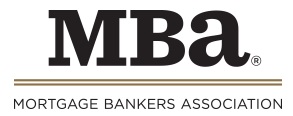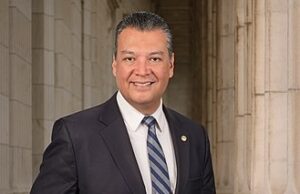WASHINGTON, D.C. – March 30, 2011 – (RealEstateRama) — John A. Courson, President and CEO of the Mortgage Bankers Association (MBA), issued the below statement following today’s release of the risk retention proposed rule.
“This is a highly complex rule that covers hundreds of pages, so it goes without saying that we will be taking a deeper dive in the coming days. But at first glance, while this rule may prove workable for commercial real estate financing, we have profound concerns about its implications for residential mortgage financing and the nation’s economy today and for generations to come.
“We are gratified to see that it appears that, as risk retention applies to all asset-backed securities transactions, the regulators have provided multiple options in the allocation of retained risk, including the 5 percent vertical slice applied to commercial mortgage-backed securities (CMBS) supported by the MBA, to avoid balance sheet consolidation of the entire issuance by the issuer.
“Given the complex and detailed provisions articulated in the proposed rule and the significant impact of the rule on the CMBS market, MBA will continue to work with the industry in response to the specific provisions embodied in the proposed regulations to ensure they promote an alignment of interests across all parties to the CMBS transaction and promote a vibrant, sound and responsible securitization market. MBA will seek clarification from the regulators with regard to the prescriptions outlined in the proposed rule for qualified commercial real estate loans that would be eligible for a reduction in the 5 percent retained risk to ensure the terminology and eligibility requirements are consistent with existing industry norms and practices.
“Related to risk retention for residential mortgages and the qualified residential mortgage (QRM) exemption, we do have concerns about the rigid and highly prescriptive nature of the proposed rule. We believe that such a narrow construct of the risk retention exemption would limit mortgage opportunities for qualified borrowers more than it would reduce the number of problem loans. Further, if the QRM were to be enacted as proposed, it could dramatically limit the role of independent mortgage banks and community lenders, who either don’t have the balance sheet capacity to hold loans or the capital to hold in reserve as retained risk, but have long histories of originating safe and well-underwritten mortgages.
“While factors like downpayment, debt to income (DTI) ratio and past payment history can be accurate predictors of loan performance, we do not believe that each ought to be considered independently.
“Rather, the rule should allow for consideration of a borrowers entire credit profile before determining whether risk retention is necessary on a given loan. For example, we believe that a lower downpayment loan could be less risky if a borrower has a strong history of making payments on time and if the borrower’s debt to income ratio is on the lower end of the scale. The rule should provide more flexibility in this regard.
“While we believe that the exemption for loans sold to Fannie Mae and Freddie Mac while they remain in conservatorship will help provide liquidity during the current period of market instability, we do note that such an exemption does little to shrink the government’s footprint in the housing finance system and could slow the return of the private secondary mortgage market.
“And finally, we agree with the regulators’ acknowledgement that broad standards for mortgage servicing warrant serious consideration, but that such an effort ought to be pursued via a separate discussion and rulemaking.”
###
The Mortgage Bankers Association (MBA) is the national association representing the real estate finance industry, an industry that employs more than 280,000 people in virtually every community in the country. Headquartered in Washington, D.C., the association works to ensure the continued strength of the nation’s residential and commercial real estate markets; to expand homeownership and extend access to affordable housing to all Americans. MBA promotes fair and ethical lending practices and fosters professional excellence among real estate finance employees through a wide range of educational programs and a variety of publications. Its membership of over 2,200 companies includes all elements of real estate finance: mortgage companies, mortgage brokers, commercial banks, thrifts, Wall Street conduits, life insurance companies and others in the mortgage lending field. For additional information, visit MBA’s Web site: www.mortgagebankers.org.
Contact:
John Mechem (202) 557-2924











